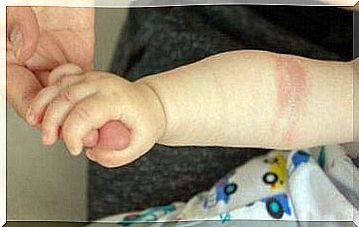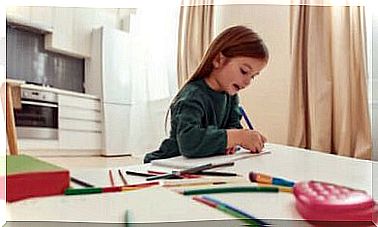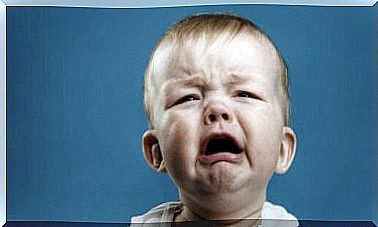5 Bad Child Behaviors We Should Not Allow – Parenthood
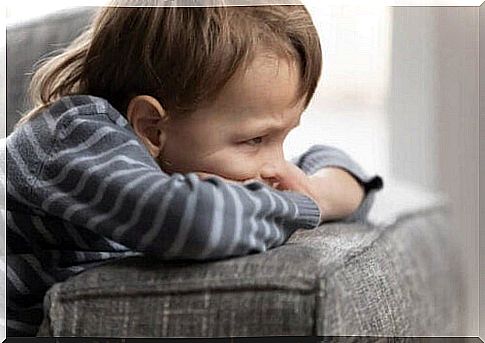
Our children sometimes have inappropriate behaviors that drive us crazy. Here we are going to see some of the bad behaviors that we should not allow and the consequences that follow if they display them.
Children are learning all the time. They do this in relation to different topics, but one of them is very important in their education: knowing which behaviors are appropriate and which are not.
A challenge for parents is to establish these limits that will guide their child towards acceptable behaviors that the latter will try to overcome, as part of his development.
What should we do about bad behavior in children?
There are times when we parents can be more tolerant or passive about certain behaviors, depending on where we are or our mood at the time.
By doing this, we are sending a mixed message to our children. Why does the same behavior have different results depending on where it is displayed? This is exactly what we must not allow. A determined behavior must have the same consequences in any case.

We must always point out to children their inappropriate behavior, but certain behaviors cannot be allowed under any circumstances because they could become a problem for them, for us or for those around them.
It is essential to be firm and to establish consequences related to their behavior. So as they grow older they will avoid them.
Bad Child Behavior We Must Not Allow
We are now going to see some of the behaviors that we cannot let pass or allow under any circumstances.
Appropriate objects that do not belong to them
Sometimes children like something very much and take it, even if it does not belong to them. It is therefore important to make them understand that, even if they want it very much, they cannot take it if it is not theirs. This is a fundamental thing because this point is linked to the values of respect and honesty.
- Consequences
If we see our child taking something that does not belong to him, we should talk to him to explain to him that he should not do it. We also need to ask him to return it and make sure he does. Even if he opposes it and even if it is not easy, he must know what is right.
Annoy others for no reason
Children often tend to argue or fight with other children over a toy, for example. It is totally normal; the problem arises when our child annoys or hurts another child for no reason whatsoever. When this happens, we need to identify what is happening and act immediately.
- Consequences
Once we are sure there is nothing to explain this behavior, we need to talk to our child to think about what made him do this, so that he can tell us what is wrong. came by and asked him to write a note of apology that he will personally deliver to the child he has bothered.
Make fun of those who are different
It is normal for children to ask questions about other children, about a disability or something in their physical aspect that appeals to them, but we cannot let them point fingers at them or make fun of them. ‘them.
As parents, it is our duty to make them understand that, regardless of how we look, we are all equal and should respect and accept others. We need to develop values like empathy and sensitivity in them. They will indeed allow them to be to become people with a good heart.
- Consequences
When it comes to this behavior, we must not let children make fun of someone. If they do, we have to scold them and explain to them that it is wrong. From an early age, you need to instill in them acceptance and inclusion of those who are different and show them how others can feel about these behaviors.
Reading stories or watching movies on this topic can help promote the importance of these values.
Other bad behavior in children that we must not allow
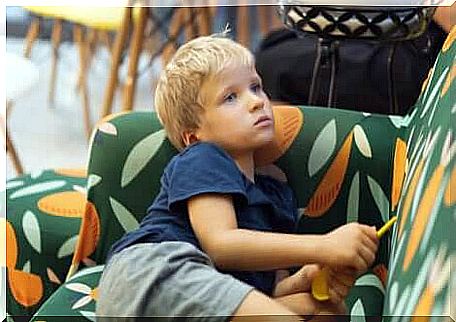
Exclude other children
If we see or if the school warns us that our child is excluding other children, it is important that we put a stop to this situation as soon as possible and that we work with him so that he develops empathy, awareness and sensitivity to others.
- Consequences
Here we have to make sure, after having had a conversation with our child, that this situation does not repeat itself. We can also ask him to integrate the child who was excluded now, so that he does not stay outside the group because of his attitude.
Disrespecting authority figures and breaking objects when angry or frustrated
Younger people sometimes have trouble dealing with their emotions, as can happen in adults. However, some children have reactions that are explosive and inordinate: they scream, hit those who are nearby, and even end up breaking objects that are within their reach.
We cannot allow this behavior and we must work with our child as soon as he does.
- Consequences
The consequences will depend on the age of the child and the intensity of his behavior. We must wait until he regains his composure to speak and assess the situation calmly.
We can give him strategies to deal with anger and these overreactions, such as relaxation techniques, breathing techniques, going out for a while, expressing what he is feeling, etc.
In addition to establishing the consequences of these behaviors (loss of a privilege that he greatly appreciated) until this situation ends, if he has broken something, he will have to devote part of his savings to the redemption of the same object or its repair.
Conclusion
Ultimately, bad behavior by children should not be allowed. The ones just mentioned are particularly delicate and cannot be allowed because they involve doing harm, either to the child himself or to others and those around him.
As parents, it is important that you always establish the consequences of these behaviors. You must try to enforce them, no matter where the behaviors take place and with whom.
You must be firm in punishing this bad behavior so that it does not happen again in the future, but not forgetting your love and respect for your children.

